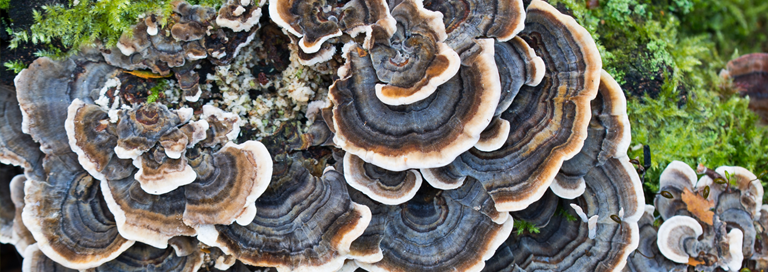Big Pharma loves the endless stream of steady profit that cancer delivers. In business terms, cancer is a “cash cow.” And the industry really does milk cancer patients for money.
That keeps Pharma execs motivated to make high-cost, long-term treatments, regardless of whether they work in any meaningful way. They line their pockets at the expense of patient care.
These fat cats know that effective, less expensive natural treatments exist. They just don’t want you to know that. So they work overtime to make sure those treatments stay under the radar.
Why? Because cheaper, safer, natural options would cut into their profit schemes.
Big Pharma companies charge $10,000 per month for chemotherapy drugs – reaping unholy profits for themselves and draining patients of their life savings.
But the highest “cost” of chemo? The debilitating long-term side effects such as hearing loss… nerve pain… osteoporosis… lung damage… congestive heart failure… and cancer.
That’s right. Several chemotherapy drugs cause other cancers.
Many cancer survivors end up with deadly cancers affecting their skin, bones, brains, lungs, and blood. It’s shameful patients aren’t warned about this.
Luckily, you have options despite what you’re hearing from your oncologist…
For generations, Asian healers have relied on medicinal mushrooms to treat a variety of diseases, including cancer.
And for 50 years, they’ve been used as registered anti-cancer drugs in Japan and China.
Multiple studies show that cancer patients can use medicinal mushrooms to:
- Kill cancer cells and shrink tumors
- Improve chemotherapy results
- Counteract chemotherapy toxicity
- Improve immune system function
- Prevent new cancers
Researchers overseas have studied the cancer-fighting powers of medicinal mushrooms for decades. Most of that research, including eye-opening human clinical trials, wasn’t published in English.
But the studies that were translated show us how effective medical mushrooms are, especially when combined with other therapies.
Top 2 Medicinal Mushrooms To Fight Cancer
In Asia, there are more than 100 types of mushrooms used to treat cancer. Here are two of the best.
1. Turkey Tail (Coriolus versicolor). Oncologists in Asia have used this mushroom to treat thousands of cancer patients.1 It brings the effectiveness of chemotherapy without damaging side effects.
The turkey tail mushroom contains two cancer-fighting compounds called PSK (polysaccharide kureha) and PSP (polysaccharide peptide).
Along with increasing survival rates and prolonging survival time, turkey tail improves immune function and quality of life.2
Studies show that turkey tail:
- Increases the three-year survival rate of Stage III gastric cancer patients by 500%3
- Kills aggressive colon cancer stem cells, including chemotherapy-resistant cells4
- Tripled survival time in advanced liver cancer patients and improved their quality of life5
- Five clinical trials found that patients treated with PSK and radiation therapy with or without chemo lived longer.6
You can take 2,000 mg of full turkey tail extract in capsule form daily on an empty stomach. Look for capsules that contain PSK and PSP.
2. Reishi (Ganoderma lucidum). Reishi is known as the Mushroom of Immortality for a good reason. It has been used for centuries to heal existing illnesses and protect against future diseases.
Reishi works against many types of cancer, including invasive prostate cancer,7 melanoma, and aggressive breast cancer.8 It also protects patients against the ravages of standard cancer treatments that damage the immune system.9
Several human clinical trials conducted in Asia show that reishi:
- Boosts immune function and response in lung cancer patients treated with chemo10
- Reduces the number and size of tumors in colon cancer patients11
- Decreases fatigue in breast cancer patients undergoing therapy12
- Brought on lasting remission in a few patients with liver cancer13
Based on the dosages used in clinical studies, you can take 1,000 mg of reishi extract daily in capsule form. For the best results, take on an empty stomach.
To Your Good Health,
![]()
Al Sears, MD, CNS
References:
1. Sun C, et al. “Polysaccharide-K (PSK) in cancer–old story, new possibilities?” Curr Med Chem. 2012;19(5):757-62.
2.Habtemariam S. ”Trametes versicolor (Synn. Coriolus versicolor) Polysaccharides in cancer therapy: Targets and efficacy.” Biomedicines. 2020;8(5):135. Published 2020 May 25.
3. Akagi J, Baba H. “PSK may suppress CD57(+) T cells to improve survival of advanced gastric cancer patients.” Int J Clin Oncol. 2010 Apr;15(2):145-52. doi: 10.1007/s10147-010-0033-1.
4. He Y, et al. “Musarin, a novel protein with tyrosine kinase inhibitory activity from Trametes versicolor, accepted inhibits colorectal cancer stem cell growth.” Biomed Pharmacother. 2021 Oct 15;144:112339.
5. Chay WY, et al. “Coriolus versicolor (Yunzhi) use as therapy in advanced hepatocellular carcinoma patients with poor liver function or who are unfit for standard therapy.” J Altern Complement Med. 2017 Aug;23(8):648-652.
6. https://www.cancer.gov/about-cancer/treatment/cam/patient/mushrooms-pdq
7. Jiang J, et al. “Ganoderma lucidum inhibits proliferation and induces apoptosis in human prostate cancer cells PC-3.” Int J Oncol. 2004 May;24(5):1093-9. 8. Barbieri A, et al. “Anticancer and anti-inflammatory properties of ganoderma lucidum extract effects on melanoma and triple-negative breast cancer treatment.” Nutrients.” 2017 Feb 28;9(3):210.
9. Gao Y, et al. “Effects of ganopoly (a Ganoderma lucidum polysaccharide extract) on the immune functions in advanced-stage cancer patients.” Immunol Invest. 2003 Aug;32(3):201-15.
10. Gao Y, et al. “Effects of water-soluble Ganoderma lucidum polysaccharides on the immune functions of patients with advanced lung cancer.” J Med Food. 2005 Summer;8(2):159-68.
11. Oka S, et al. “A water-soluble extract from the culture medium of Ganoderma lucidum mycelia suppresses the development of colorectal adenomas.” Hiroshima J Med Sci. 2010 Mar;59(1):1-6.
12. Zhao H, et al. “Spore Powder of ganoderma lucidum improves cancer-related fatigue in breast cancer patients undergoing endocrine therapy: A pilot clinical trial.” Evid Based Complement Alternat Med. 2012;2012:809614.
13. Gordan JD, et al. “And what other medications are you taking?” J Clin Oncol. 2011 Apr 10;29(11):e288-91.

